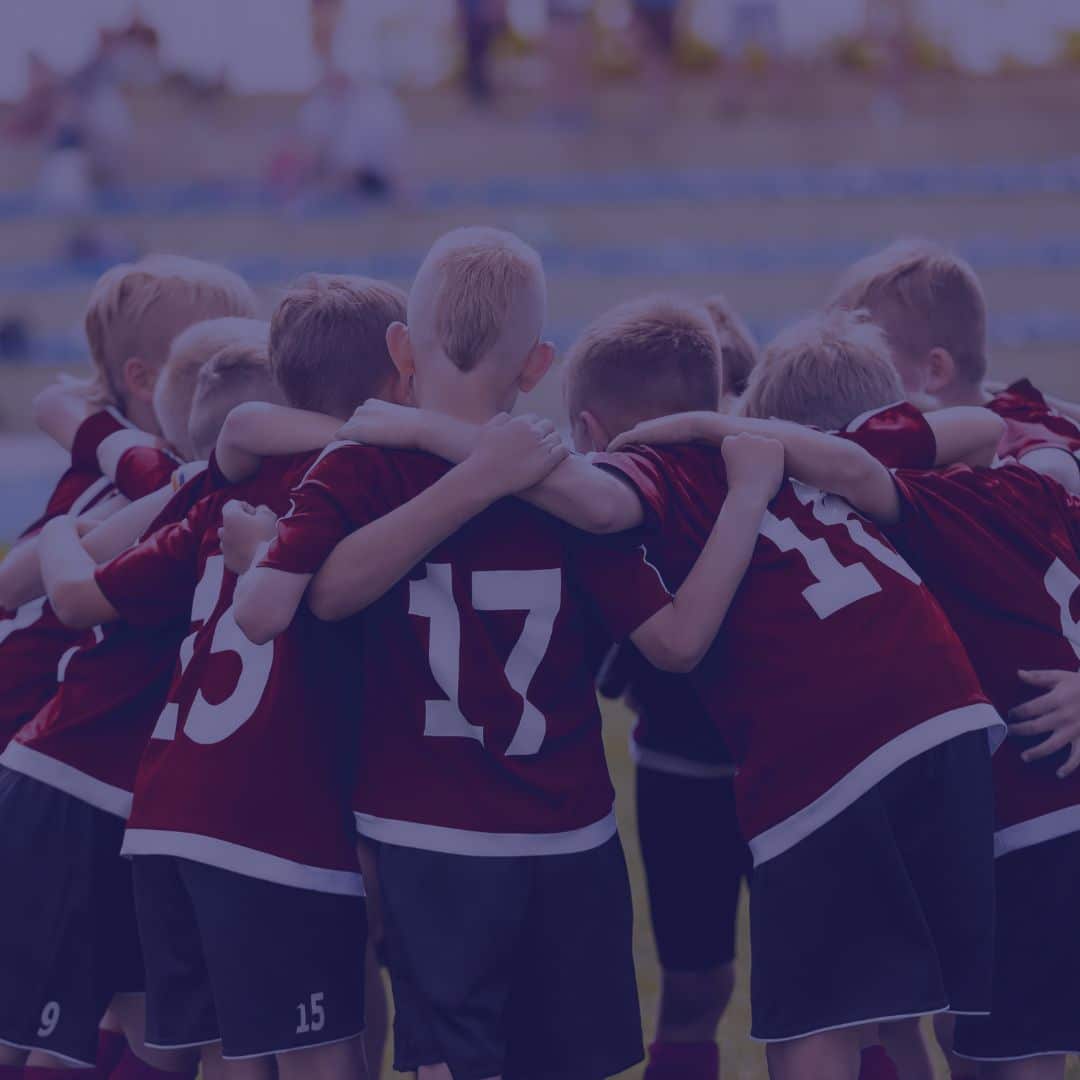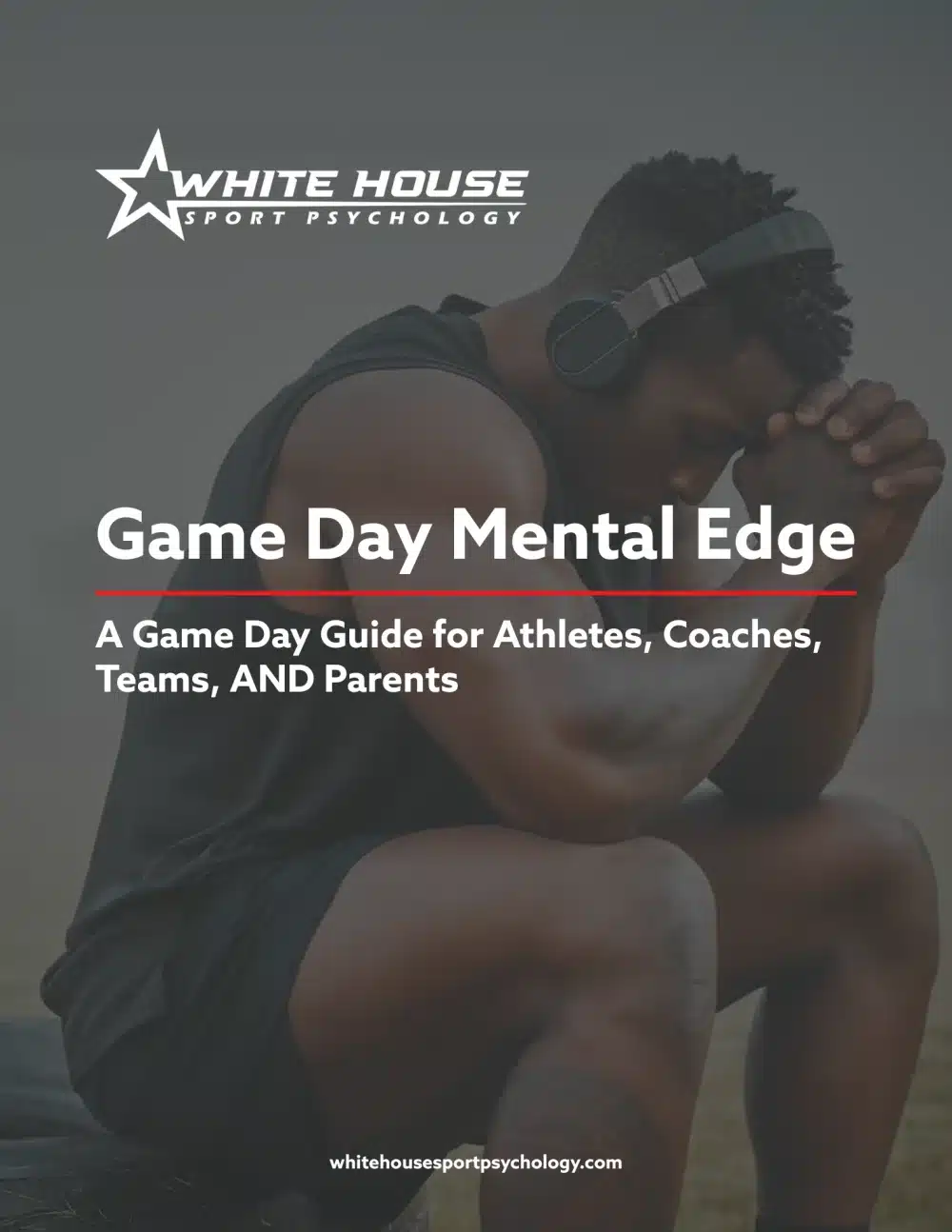
This article is written by special guest, Megan Cain. She is an intern with us at White House Sport Psychology as she works toward her goal of becoming a sport psychologist.
Youth sports are a space for fun, growth, development, and community. They’re a place where children can learn teamwork, resilience, and love for the game. But over time, that lighthearted spirit has been dimmed by an increasing adult presence that can sometimes bring more harm than help.
From overbearing parents yelling from the sidelines to coaches prioritizing winning over development, adult interference in youth sports has become a growing concern. While many adults mean no harm, their actions can create pressure, anxiety, and even burnout in young athletes.
When Parental Pressure Takes a Toll
Take Jenny* for example. Jenny was a volleyball prodigy. Her talent and drive were evident early, and by fourth grade, she was already playing in school and club leagues. By her sophomore year, college scouts had taken notice.
But everything changed during her junior year when she sustained a knee injury that required surgery. This meant missing the entire school season, a reality that was hard for Jenny to face. And unfortunately, it was also particularly hard for her mother.
Jenny’s mom, once a standout athlete herself, had seen her own career cut short by injury. Without realizing it, she had been projecting those unfulfilled dreams onto Jenny, pushing her with intense training, strict diets, and rigid expectations that often isolated Jenny from her friends, teammates, and classmates.
When Jenny got injured, her mom became emotionally distant, redirecting her attention to Jenny’s younger sibling. For Jenny, the physical pain of her injury was nothing compared to the emotional betrayal she felt by her mom.
By the time Jenny was cleared for club season, her love for the sport had dimmed. She played more out of obligation to her mom than joy, afraid that quitting would cost her relationship with her mom once again.
Struggling with her identity and the pressure to perform, Jenny turned briefly to substances to cope. But instead of helping, they worsened her situation. Eventually, she sought help from a sport psychologist. Through therapy, Jenny began to separate her identity from volleyball, realizing that she was more than just an athlete.
Reclaiming Joy Through Healing
With a new mindset and healthier boundaries, Jenny made a full physical and emotional recovery. She returned to the club season stronger and eventually accepted a roster spot at a Division I school.
However, not long into her college career, she chose to walk away from the sport, recognizing that her mom’s passion wasn’t truly hers. And for the first time in a long time, Jenny chose something for herself.
Jenny’s story is a cautionary tale for many sports parents. What typically starts as encouragement can transform into pressure and unrealistic expectations, especially when parents unknowingly project their hopes or anxieties onto their child. Parental involvement often comes from a place of love, protection, and support for their child’s success, but unfortunately, that desire can go too far, causing more harm than good in the process.
Oftentimes, it is not just a parent who affects an athlete’s performance. Sometimes, the adult can be working closely with the athlete as a coach, athletic director, or even a personal trainer. Consider Emma’s story.
When Coaches Cross the Line
Emma* played basketball from middle school through high school, knowing she wasn’t aiming for college sports and just wanted to enjoy the game. But her relaxed attitude and experience shifted drastically during her junior and senior seasons under Coach Jones*.
Off the court, Coach Jones was warm and personable, but on the court, she was harsh and unpredictable, often yelling at players, calling them failures, and breaking them down in front of others. Behind closed doors in the locker room, the verbal attacks only intensified, leaving many of the girls on the team, including Emma, feeling like nothing they did would ever be enough.
At first, Emma tried to shake it off. She performed well in practice, shooting confidently and playing with ease. But as the season wore on, anxiety crept in, especially on game days. She often spent time before warmups bent over a trash can, fighting the feeling of nausea, or hiding in the bathroom, having panic attacks.
The fear of making a mistake and facing Coach Jones’ wrath completely overpowered her ability to play freely. While she could shoot three-pointers effortlessly in practice, she made only a few the entire season during games.
Eventually, the pressure began to affect her beyond the basketball court. Emma’s fear of disappointing Coach Jones fed into her everyday life, gradually turning into a fear of disappointing her friends and parents as well.
The anxiety became so overwhelming that she started to skip school, only to find that avoiding school brought on more anxiety. It was a cycle she felt she could not escape. Every part of her life felt controlled by fear and self-doubt, and conversations with Coach Jones only added to the weight she carried.
Lingering Effects and the Power of Support
Emma has since graduated and moved on to college. Although she has not played competitive basketball in over two years, the emotional impact of playing for Coach Jones still lingers. Emma’s story is a reminder that coaching can significantly impact not only an athlete’s level of performance but also their mental health.
Unfortunately, Emma didn’t have the same support from a sport psychologist like Jenny did. With support from a trained sport psychology professional, Emma could have learned to manage her pre-game anxiety, play more consistently in games, and have more fun playing the sport she initially loved. And let’s remember the all-important effect of protecting her mental well-being.
Sport psychology is not “just for athletes”. Coaches benefit by working with sport psychology professionals, too. Keep in mind, they are also performing every time they run a practice or make that critical decision in the middle of a game. Their ability to manage their own thoughts and emotions is just as important to them as it is to the athletes they lead.
Helping Kids Thrive Beyond the Game
Jenny and Emma are not the only athletes who face challenges like this. Their experiences reflect a troubling reality in youth sports where the stress, pressure, and expectations imposed by adults can leave lasting emotional damage. Parents may become overly invested and live vicariously through their child’s achievements, while coaches may prioritize winning at the expense of their players’ mental health. In both cases, the result is often the same: adults who end up harming the same children they intended to protect, lead, and support.
Many young athletes struggle alone, believing their stress, fear, or self-doubt is just part of the game. But it doesn’t have to be. A sport psychologist can help athletes navigate performance anxiety, set healthy boundaries, rebuild self-confidence, and reconnect with the joy of their sport.
Yes, athletes and coaches want to win, but at the youth level, sports need to include growth, development, resilience, and passion. And this needs to be included above and beyond the competitive goal of winning.
When young athletes are given access to sport psychology resources that can help them define success on their own terms, they’re far more likely to thrive not only in their sport but also in life.
And White House Sport Psychology is a great place to start. Scheduling a consultation is a crucial first step toward clarifying your goals and accessing the support sport psychology professionals can provide. By working with a professional, athletes like Jenny and Emma won’t have to suffer alone. Schedule your free consultation today!
*Names have been changed to protect the privacy of the individuals in these stories.

